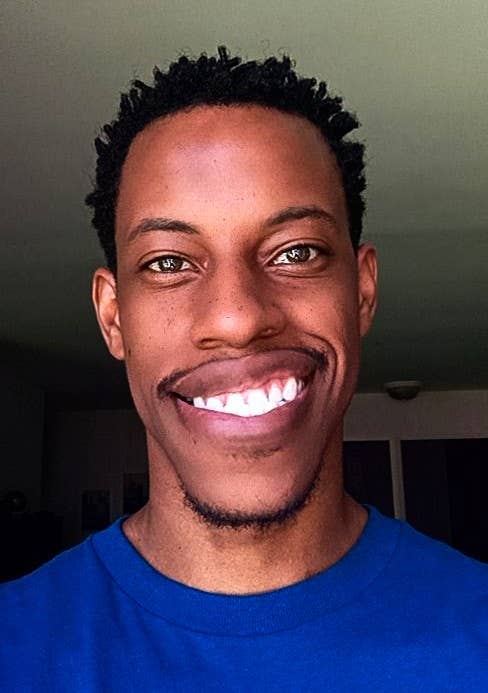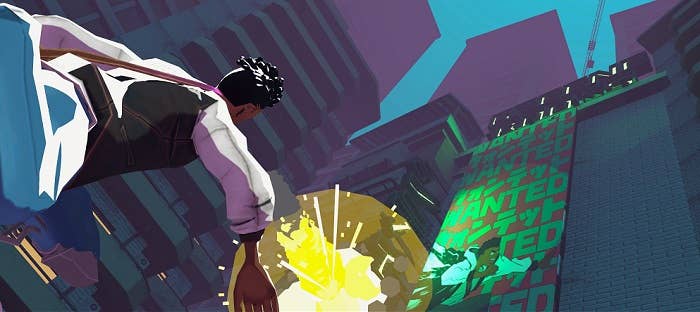Aerial Knight's Never Yield: A solo developer's journey of self-actualization
Neil Jones' journey led him from industry rejection to independent success
Ten years. That is the amount of time that Neil Jones, lead/solo developer of Aerial Knight's Never Yield has attempted to break into the games industry.
Speaking with GamesIndustry.biz recently, the Detroit-based developer doesn't shy from sharing this fact when talking about his motivation for developing Never Yield, which launched on all major platforms this month.
He was told repeatedly by studios that he wasn't good enough to be hired. Despite this, his journey led him to be featured on Nintendo's Indie World showcase this past April.
Jones' story echoes that of many who are unable to break into the industry. It also speaks to the fact that Black people only account for 2% of the industry, as reported by the IGDA.
He shares that he was frustrated as the industry just wasn't welcoming to him. So, he decided to develop Never Yield entirely by himself as a "last hurrah."

"This was supposed to be my last game, I took a shot in the dark, I was frustrated with the games industry," Jones says.
"I was kind of fed up with the hiring process and trying to get a job. I just kind of came up with this idea. I said to myself, if people like this game then I know that I'm supposed to be doing this."
Jones further explains, were the game to launch and no one liked it, he still would be satisfied. He would move on to "other passions and industries that are more welcoming. Luckily people like it."
He also acknowledged that as a game made by a Black person, it would be "for the culture."
Jones understands that games featuring Black characters are still far and few in between. So, a game created by a Black developer, starring a Black character, would garner attention.
"When you play the game, you get a sense of the things I like and the style I try to have," Jones says.
To that end, Never Yield's art, design, stylistic choices, and cultural references were chosen deliberately over its two-and-a-half years of development.
"This was supposed to be my last game, I took a shot in the dark, I was frustrated with the games industry"
When speaking of receiving platform support, Jones mentions that ID@Xbox was the first to reach out to him regarding the game.
"Xbox was the first ones to reach out and say, 'Hey we would like to help you.' ID@Xbox has a lot of Black employees that are on Black Twitter and Black game Twitter. They reached out to me before anyone else."
Jones soon thereafter found a publisher after showing a collage of his prototype during The Media Indie Exchange (MIX) showcase. Afterwards, he says "a bunch of publishers reached out" to him showing interest in the title. He recounts that the one company that stood out to him was publisher Headup Games. The publisher presented goals for him and Never Yield that aligned with what he envisioned from the start.
"I still own the IP and everything about the game. That's the reason I partnered with them. Headup helped me with porting to consoles," Jones explains.
Not long thereafter, Headup was in contact with Nintendo about its Indie World Showcase and Jones was excited to be featured. He recalls that when providing the script for his segment introducing Never Yield he wanted to be honest.
"They don't know but if they rejected that script? I wouldn't have done it," he says. Jones adds that this was a moment where he was sharing his story and his game to many. He expresses that he wanted to be nothing but his authentic self.
The feature was accepted and Never Yield had the second longest segment of any game in the showcase, which has been viewed on YouTube almost 10.4 million times in less than two months. As Jones reflects on the positive feedback to the showcase appearance, he "felt something" as both he and Never Yield lead composer Daniel Wilkins were processing the new level of attention.
"In regards to the Nintendo thing, numbers get so high you can't even comprehend them anymore," Jones says.
As the newfound attention subsided, Jones wanted to know what's next for him to promote and or advocate for the game. He notes that he is constantly worried about the next goal for himself and the title.
While acknowledging attention is good, the developer says that "it doesn't matter if people don't go out and buy the game".
With that thought in mind, Jones made sure to express during his press work that he is only speaking for himself, not Black people as a whole. But also making sure people understand that Black people are making games and that he himself isn't special.

"They don't know but if they rejected that script? I wouldn't have done it"
Jones pauses to reflect on all the attention he's received and says that there are other Black developers in the same position as he had been for the past 10 years. The only difference being that their work hasn't received as much attention.
"There are so many other black people who should been in this spot, who are way better than me doing these things," Jones says.
"The fact that I'm here and I'm seen as maybe the first in some cases -- special -- is the issue. I shouldn't be anything special. It's one step at a time in fixing it, we got to do better."
As Jones reflects on the games industry's ongoing struggles with diversity and inclusion, he recalls two interactions to his personal developer story that stand out.
In one case, Jones watched as a non-Black streamer was shocked at their community's highly negative reactions when he was on screen during the Nintendo Indie showcase. The other instance involved replies to an interview he conducted, in which people largely questioned the validity of him being rejected from industry jobs for 10 years.
Jones takes this in stride along with his other experiences as he looks back at the work that has led him to releasing Never Yield.
"I think I've worked on two [games] that came out and 25 that never got finished," he recalls.
"Over 10 years, projects mostly don't go anywhere and you use those aspects on the next project. And I've mainly used them as learning experiences."
Jones does admit that the time from development to eventual release of Never Yield was mostly a positive one. When thinking on the matter of his personal frustrations, he said that the constant need to prove himself was the only one.
"There was this situation where I had to prove that I was worthy of an interview to somebody. I was like "Never mind," Jones shares.
"They always ask you why are you here, it's so weird in the games industry, how they make these rules and then they change them. I feel like the goal post constantly kept moving."
He mentions that these experiences are just a part of his journey he doesn't look back upon much.
When speaking about his decision to put his screen name on the game, Jones says it's a reaction to the fact that people don't know who works on the titles that they play.
"I think all game devs need to claim their work. You're doing all this amazing work and no one knows who you are," Jones explains.
"I think all game devs need to claim their work. You're doing all this amazing work and no one knows who you are"
During development, Jones said knowing his name was on the game gave him added incentive "to make it perfect and make sure it's yours."
When looking back at what drove his passion project, Jones recalls the words of his high school coach, "If things don't change, they remain the same unless you change them."
"It grew out of frustration. It was for me, for myself to say I was good enough, even if I don't get a job from this game. It proved to myself I was good enough, when they kept telling me when I wasn't," Jones said.
Jones further explained that he found himself in a loop as he constantly tried to find work at major studios in the industry. He would apply, not get hired, try to refine his talents more, and so on.
That's when he remembered his coach's advice and found his breakthrough motivation for development. Jones advises other marginalized developers to do the same and reassess the options available to them.
"Do something different, make the game yourself, go work with a team or small community, focus on something that isn't game development," Jones shares.
"I found a little success with app development, working at studios making non-game related things. Try something like that to get you out of that endless loop, because what do you have to lose, right?"

